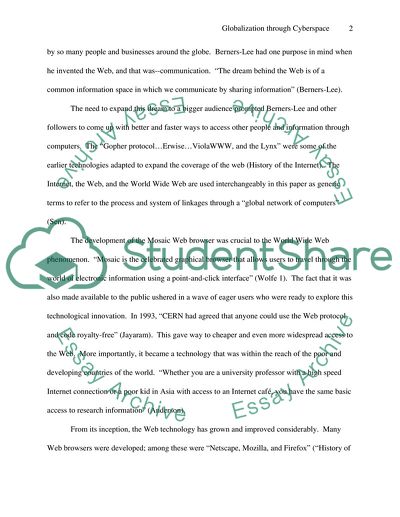Cite this document
(“Globalization through Cyberspace Essay Example | Topics and Well Written Essays - 1750 words”, n.d.)
Retrieved from https://studentshare.org/technology/1547471-globalisation-i-would-like-writer-16049
Retrieved from https://studentshare.org/technology/1547471-globalisation-i-would-like-writer-16049
(Globalization through Cyberspace Essay Example | Topics and Well Written Essays - 1750 Words)
https://studentshare.org/technology/1547471-globalisation-i-would-like-writer-16049.
https://studentshare.org/technology/1547471-globalisation-i-would-like-writer-16049.
“Globalization through Cyberspace Essay Example | Topics and Well Written Essays - 1750 Words”, n.d. https://studentshare.org/technology/1547471-globalisation-i-would-like-writer-16049.


